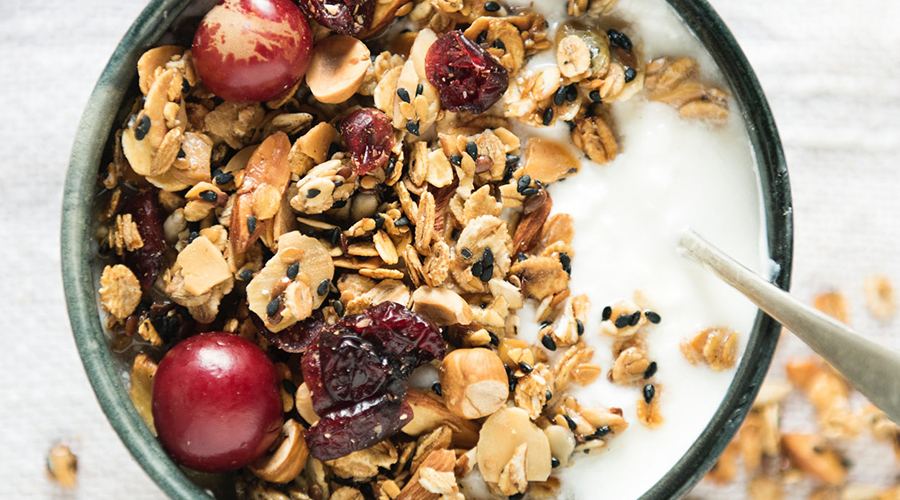Salt therapy – All you need to know
- 24 Feb - 01 Mar, 2024

Mental health is complex, but new research suggests that a bacteria found in fermented foods and yogurt may help prevent depression and anxiety. Researchers at the University of Virginia School of Medicine have discovered that the bacterium Lactobacillus helps the body manage stress, potentially preventing the onset of mental health conditions like depression and anxiety. Earlier research suggested that the bacterium could reverse depression in mice. To understand why this happens, the researchers used a collection of bacteria, known as Altered Schaedler Flora, which included two strains of Lactobacillus and six other bacterial strains.
The transfer of gut bacteria from stressed mice to germ-free mice was shown to lead to lead to depression and anxiety-related behaviors. Mice without Lactobacillus in particular were shown to exhibit elevated stress responses and lower levels of an immune factor called interferon-gamma, which is involved in regulating stress response. This research could lead to the development of new methods to treat and prevent mental health conditions. For example, in the future people who are at risk of depression could take a probiotic supplement that contains Lactobacillus.
Lactobacillus and mental health: what’s the link?
Sas Parsad, nutritionist at The Gut Co says this study adds “valuable insights” to the connection between gut health and mental well-being, a growing area of interest in the field of nutrition.
“The fact that Lactobacillus, commonly found in fermented foods and yogurt, is linked to stress management and potential prevention of depression and anxiety opens up exciting possibilities for holistic approaches to mental health,” he notes.
Dr. Bankole Johnson, neuroscientist in Miami agrees. He says this study highlights the role of gut microbes on stress and anxiety, and in turn, how diet affects our mental wellbeing. “Microbiota influences brain signaling, and so changes in microbiota alter brain stimulation. This is an important effect and suggests that we really may be what we eat,” he says. Lactobacillus’s role in supporting mental health can be attributed to its impact on the gut-brain axisTrusted Source, says Parsad.
“The gut is often called the “second brain” due to the bidirectional communication between the gut and the central nervous system,” he explains.
“When abundant in the gut, Lactobacillus appearsTrusted Source to modulate this communication, influencing the production of neurotransmitters like serotonin and gamma-aminobutyric acid (GABA), which play key roles in mood regulation.”
Diet choices and supplements are not a substitutes for treatment
Of course, it would be ludicrous to suggest that simply getting more Lactobacillus into your diet could act as a catch-all prevention tactic for mental health problems. Eating a healthier diet can certainly improve your mental health and impact how you respond to stress, but Lactobacillus is not a substitute for treatment. Rather it can complement it. “These findings could revolutionise mental health treatments in that they suggest that incorporating dietary considerations, including Lactobacillus-rich foods, might become a complementary strategy for managing stress, depression, and anxiety,” Parsad notes.
Parsad says this holistic, complementary approach aligns with the emerging understanding that mental and physical health are interconnected. It therefore emphasises the importance of a well-balanced diet for overall well-being. The key word there is ‘holistic’ and it’s important to remember that many physical and emotional experiences can contribute to a decline in mental health. How mentally well we feel can be impacted by everything from experiencing childhood trauma or social disadvantage to genetics, age, lifestyle, and much more. Parsad concurs. “We must recognise that diet is just one aspect of mental health management and that lifestyle factors, including regular physical activity, adequate sleep, and stress management techniques also play crucial roles,” he notes. When we feel out of balance, we often need to take a multi-faceted approach to improving our mental health.
Lactobacillus is not a substitute for mental health medication prescribed by a healthcare professional or for therapeutic intervention, but it may complement it.
Foods for improved mental health
If diet is one area in which you want to improve, then Parsad recommends increasing your intake of Lactobacillus by incorporating fermented foods such as yogurt, kefir, sauerkraut, kimchi, and pickles into your diet. Ideally, you’ll consume one serving of fermented food per day. If that feels like a tall order, Parsad says high-quality probiotic supplements that contain strains of Lactobacillus are a good alternative.
“Beyond Lactobacillus-rich foods, a diet rich in omega-3 fatty acids (found in fatty fish, flaxseeds, and walnuts) has been associated with reduced depressive symptoms,” says Parsad. Antioxidant-rich fruits and vegetables, whole grains, and foods containing magnesium (like leafy greens, nuts, and seeds) may also be beneficial for mental health.
COMMENTS